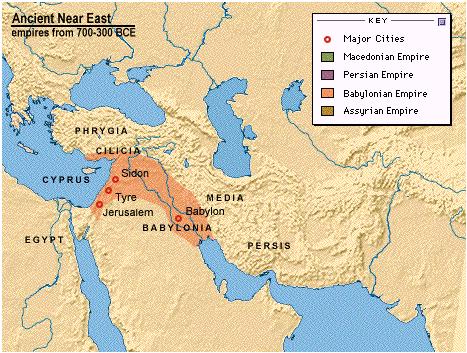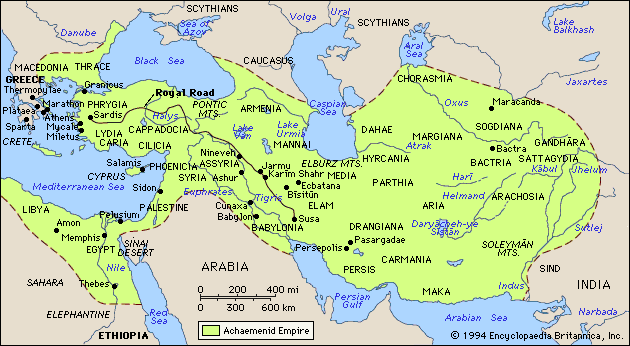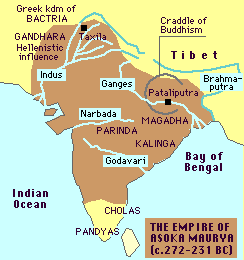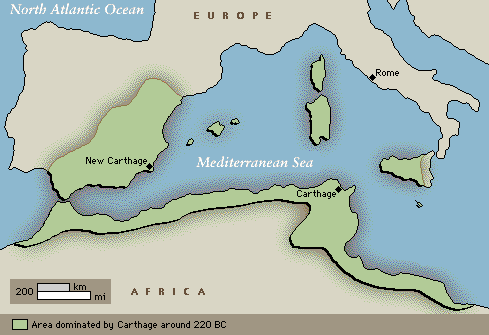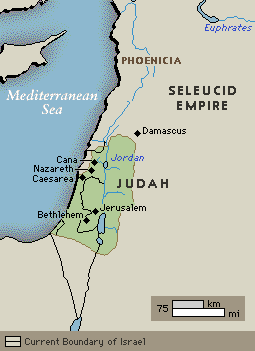|
Historical Chronology |
![Lightning Bolt [Top]](dark_top.gif)
600 B.C. to 1 B.C.
6th cent.: Axis Era: zenith of human wisdom & achievement, Babylonians developed 19 year cycle lunisolar calendar (c.2hr/19yr deviation from solar), Hanging Gardens of Babylon, Mayan civilization in Mexico, oldest extant Latin, Fables of Aesop, theatre arts begun in Delphi, Age of 7 Wise Men of Greece: Thales, Pittacus, Bias, Solon, Cleobulus, Periander, Chilo; height of oracle at Delphi & its priestess, Athens built public libraries, Hecatompedon, Temple of Olympian Zeus; Shwe Dagon Pagoda of Burma, Temple of Apollo at Corinth, Temple of Ceres at Paestum, Romans began building with semicircle arched ceilings adopted from Etruscans, T. Priscus built 1st Roman stone bridge, Cloaca Maxima built to drain Roman Forum
600-559: Cambyses I: Persian King (eastern Iran), father of Cyrus II
600: Marseilles, France: founded by Greek colonists (Lacydon, Marsilea)
c590: Sappho of Lesbos: Greek poetess, feminine love cult
587: Lachish Letters: ostraca, classical Hebrew on 21 potsherds, AD 1935/38
586: Nebuchadnezzar II, king of Babylon, conquers Jerusalem & destroys Temple: Jewish Exile
Babylonian Empire circa 586 BC
585-550: Astyages: last Median King (western Iran), overthrown by Cyrus II
582-c390ce: Isthmian Games: on Isthmus of Corinth, athletic & musical
580: Heraion: Greek temple of Hera the Queen of Heaven on island of Samos
c575: Priestly (P) source of Genesis-Numbers (Mosaic Law) written in Babylon
562-560-556: Amel-Marduk - Nergal-shar-Usur: Babylonian Kings, Chaldeans
561: Solon: b.640, Athenian statesman, "Laws of Solon", repealed Draconian Law except for homicide; Loeb: "Parallel Lives, v1, Solon" by Plutarch (120ce)
560-546: Croesus: King of Lydia, defeated by Cyrus the Great at Sardis
c560: Deuteronomist (D) source of Joshua to Kings written in Babylon
559-529: Cyrus II the Great: founded Persian Achaemenid Empire, pony express, freedom of religion, conquered Armenia in 549, Lydia in 546, Babylon in 539; granted Jerusalem Temple rebuilding to Sheshbazzar & Zerubbabel in 538, Ez. 1:1ff in Hebrew, Ez. 6:3f in Babylonian Aramaic, work halted by Cambyses II
555-539: Nabonidus: Babylonian King, Chaldean, promoted moon-god Sin of Harran
552-543: Bel-shar-usur (Belshazzar): acting regent of Babylonia while father Nabonidus in Tema, Arabia (in exile? worshipping Arabian moon-god? ...)
547: Anaximander of Miletus: b.611, Greek philosopher, 1st Greek sundial?
546: Thales of Miletus: b.636, Greek philosopher, water is primary substance, 1st known accurate prediction of solar eclipse in Europe: 28 May 585
c540: Temple of Diana on Janiculan hill in Rome
538-167: 2nd period of Hebrew literature: Aramaisms, square script adopted
536: Cyrus II the Great of Persia issues 1st Edict to rebuild Temple in Jerusalem (according to the 1st chapter of the Book of Ezra)
535: Carthaginians & Etruscans defeated Greeks at sea off Corsica
c531: Lao-tzu: b.604?, 571?, pseudonym?, Li Er?, Chinese philosopher, "Tao Te Ching"
530: 2nd Isaiah written in Babylon by Deutero-Isaiah, proclaims Cyrus as Jewish Messiah because of his decree to rebuild Temple; Cyrus the Great conquers part of Punjab
529-522: Cambyses II: Persian Emperor, son of Cyrus II, conquered Egypt in 525
527: Mahavira Jina: Vardhamana, b.599?, Indian philosopher, founded Jainism
526: Anaximenes of Miletus: b.586, Greek philosopher, air is primary substance
525-404: 27th Dynasty rulers in Egypt: Cambyses II 525-522, Darius I 521-486, Xerxes I 486-466, Artaxerxes I 465-424, Darius II 424-404
521-486: Darius I: Persian Emperor, founded Persepolis, extended empire to 20 satrapies (provinces), conquered India's Punjab in 517-509, Thrace in 512; 2nd Jerusalem Temple construction completed in 515 [Ez6]; Persepolis Tablets: Old Persian in 36-sign Cuneiform & Aramaic alphabets
519: Darius I of Persia issues 2nd Edict to rebuild Temple in Jerusalem (according to the 6th chapter of the Book of Ezra)
514: Carthage defeated the Spartan Dorieus' attempt to colonize Libyan coast
509-27: Roman Republic: founded when Tarquin Kings were expelled after "Rape of Lucretia", 2 consuls elected yearly, Temple of Jupiter Optimus Maximus
508: Cleisthenes: b.570?, introduces sweeping democratic reforms in Athens
507: unsuccessful attempt by Sparta to oust Cleisthenes & restore aristocracy; Pythagoras: b.582, Greek mathematician, numbers are primary substance
c505: Rome sacked by Lars Porsenna of Clusium
500-200: Dharmasastra (or smrti) period of Indian Sanskrit lit.: "Sutras"
500-300: Classical Greek: Attic Greek of Athens becomes standard Greek
Persian Empire circa 500 BC
c500: Susrata: Indian surgeon, performed cataract operations; Parmenides: Greek philosopher, founded Eleaticism at Elea, Italy: "motion & change are illusions, only immovable & immutable Being is real" 499-479: Greece's "Persian Wars": Persia failed to conquer Greece
500-100: Adena Culture in North America flourishes: The Adena culture was a conglomerate of many Indian communities that inhabited the Central and Southern regions of Ohio in the first millennium BC. The Adena people lived in villages and survived by hunting, fishing and gathering wild plants. Although the Adena culture survived for many centuries, much of what we know of them today is drawn from mounds.
498: Temple of Saturn in Rome
495-452: Alexander I: King of Macedon, succeeded by 5 sons
494: Plebeians (Plebs) revolt in Rome: tribunate formed with Concilium Plebis
490 Aug 12: Battle of Marathon: c.26 miles from Athens, Greeks defeated Persians
486-466: Xerxes I: Persian Emperor, halted Babylonian revolt & melted their golden Marduk god in 482, sacked Athens in 480, decline, assassinated
485-478: Gelon: Tyrant of Syracuse, defeated Carthaginians at Himera in 480
483: Heracleitus: b.544, Greek philosopher of Ephesus: "permanence is illusion & constant change is only reality"; coined "Logos" (Word) as 3-fold: order creator; order sustainer; rationality expressed as written language; Buddha: Siddhartha Gautama, b.563?, Indian philosopher, founded Buddhism
480-380: height of Greek drama at Athens
479: K'ung Fu-tzu: Kung Ch'iu, Confucius, b.551, Chinese philosopher, founded Confucianism, sayings recorded in "Lun-yu" (Analects), coined "Tao" (Way), Golden Rule: "What you do not like done to yourself, do not do to others"
478-412: Delian League: formed by Athens against Persians, rebuilt city walls
474: Carthaginians defeated Etruscans at sea off Cumae
475-427: Archidamus II: Spartan King, Helot Revolt: 465-461, earthquake: 464 c468: Aristides the Just: b.530?, Athenian statesman & general; (Loeb)
466: Benghazi, Libya: founded as capital of Cyrenaica
465-424-404: Artaxerxes I - Xerxes II - Darius II: Persian Emperors
464: democracy in Syracuse
462-429: Pericles: b.500?, Athenian democratic leader, disciple of Anaxagoras, in 460 began Peloponnesian Wars with Sparta (till 404) which led to decline, captured Memphis, Egypt (460-454); in 457 built "Long Walls", beginning of 28-year golden age; in 451 "5-year truce" with Sparta; in 448 Treaty of Callias brought Persian support against Sparta; in 447 construction began of Classical Temples on Acropolis; in 446 "30-year truce" with Sparta; in
c460-c375: Hippocrates, Greek Physician, of Cos, is traditionally called the 'Father of Medicine'. He maintained that disease had only natural causes, and took the treatment of disease out of the hands of religion. His theories of medicine are summed up in the 'Corpus Hippocratium', a collection of 70 works, the oldest surviving complete medical books. The 'Hippocratic Oath' named after him, gave the medical profession a sense of duty which it never lost.
458: Cincinnatus: named dictator of Rome by Senate to defend city v. Aequians, when done quit & returned to farming, model for U.S. Revolutionary troops
457: 3rd Edict for rebuilding Temple in Jerusalem given by the Persian Artaxerxes I (7th year of his reign). Start of two thousand and three hundred 'days' [means 2,300 years] of occupation by the 'gentiles' and 70 'weeks' [means 490 years] until Messiah appears [Jesus the 'Christ'] (according to the 7th chapter of the book of Ezra). [Each day, according to the text of the Holy Book, is a year. For in the Bible it is said: "The day of the Lord is one year." Therefore, four hundred and ninety days are four hundred and ninety years]
456: Aeschylus: b.525, Greek "Father of Tragedy", introduced second actor, scenery & costumes to Athenian theatre, wrote: Suppliant Maidens; Persians; Prometheus; 7 Against Thebes; Agamemnon; Libation Bearers; Eumenides
453-221: "Warring States" period of China: Zhou/Jin/Wei/Han/Zhao/Chu/Yan/Qi, steel sword (Ch'ang-sha,1976), Yu Hoi discovers precession of the equinoxes
451: 3 Roman Senators sent to Athens to study "Laws of Solon" (561), in 450 Decemvirs codified Roman Law as "XII Tables"; Loeb:Remains of Old Latin,v3
c450: Torah (Mosaic Law): compiled from E,J,P,D sources in Babylon; Diagoras of Melos: first Greek Atheist?, "Ho Atheos" (The Atheist); Celts (La Tene culture, Druids) invaded British Isles; Papyrus Elephantine: in Aramaic, Jewish military colony in Egypt on Nile island of Yeb, Yahu (YHW) god temple (destroyed in 410), also Eshem god & Anath goddess, also Bethel (BYT'L) & Herem gods, ... AD 1907/8 ; Celtic migrations in Southern France
444: 4th Edict by Artaxerxes I of Persia to rebuild the Temple in Jerusalem (according to the 2nd chapter of the book of Nehemiah)
438: Pindar: b.518, Greek lyric poet, victory odes ... (Loeb Classics); Mo-tzu: Mo Ti, b.479?, Chinese philosopher, founded Moism: Universal Love
432 mathematician Meton adopted 19-year cycle lunisolar calendar; on 3 Aug 431 solar eclipse recorded [Thucydides 2.28.2]; in 430-427 plague killed c. 1/3
431: Temple of Apollo in Rome
430: Book of Ruth written
428: Samaritans built temple at Mount Gerizim in Samaria
425: Herodotus: b.485?, Greek "Father of History"; (Loeb Classics: 4 volumes)
412: Treaty of Miletus: Persia switches support to Sparta against Athens
411: oligarchy in Athens, democracy restored in 410
410: Protagoras: b.480, Greek philosopher, Sophist Agnostic banned from Athens, "Man is the measure of all things", "truth is subjective"
409: Rhodes built by Greek architect Hippodamus of Miletus
406: Euripides: b.480, Greek Dramatist: Cyclops, Orestes, Electra; (Loeb:4v); Sophocles: b.495, Greek Dramatist, introduced third actor & expanded chorus from 12 to 15 in Athenian theatre, wrote: Oedipus Rex, Oedipus at Colonus, Antigone, Ajax, Electra, Trachiniae, Philoctetes
405-367: Dionysius the Elder: Tyrant of Syracuse, major power of Greek Italy, tried to drive Carthaginians from Sicily in 3 wars of 398-392, 382-375, 368
404-359: Artaxerxes II: Persian Emperor, plagued by revolts, Egypt etc.
404: Sparta defeats Athens, "Long Walls" destroyed, "30 Tyrants" rule till 403
404-399: 28th Dynasty ruler in Egypt: Amyrtaios 404-399
403: Tzu-ssu: b.482, Chinese philosopher, wrote: "The Central Harmony"
400: Thucydides: b.460?, Greek historian: "History Peloponnesian War"; Loeb:4v; Tsou Yen: Chinese philosopher, founded Naturalists, 5 elements theory; Chuang-tzu: chapters 1-7 written by Chuang Chou, Chinese Philosophy; Ch'un-ch'iu: "Spring & Autumn Annals", 722-481 chronicle of Lu, China; Li-chi: "Book of Rites" by Tseng Tzu; lost "Book of Music" by Yueh ching; Nehemiah comes from Babylon to aid Jerusalem Temple rebuilding [Neh. 1-6], Ezra the Scribe brings Torah (Mosaic Law) to Jerusalem from Babylon [Neh. 8]
399: Socrates: b.470?, Greek Philosopher, condemned to death by hemlock
399-380: 29th Dynasty rulers in Egypt: Nepherites I 399-393, Psammuthis 393, Hakoris 393-380, Nepherites II 380
395-387: Corinthian War: Corinth & Athens versus Sparta, involved Persians
394-391: "Long Walls" rebuilt at Athens
393-370: Amyntas III: King of Macedon, father of Philip II (359-336)
390: Gauls from northern Italy under Brennus sacked Rome: "Vae victis"
385: Aristophanes: Athenian dramatist: "Archarnians; Knights; Clouds; Wasps; Peace; Birds; Frogs; Lysistrata; Thesmophoriazusae; Ecclesiazusae; Plutus"
380-343: 30th Dynasty rulers in Egypt, (The 30th Dynasty was the last of the Egyptian-born Pharaohs): Nectanebo I 380-362, Teos 365-360, Nectanebo II 360-343
380: Lysias: b.459, Greek orator, wrote: "Oration 1", "Oration 32"
377: City walls of Rome built
375-335: Papyrus Samarian: in Aramaic, fragments of legal documents
371: Battle of Leuctra: Sparta, defeated by Thebes, begins decline in power
367-344: Dionysius II the Younger: Tyrant of Syracuse, disciple of Dion (354)
367: Persians standardize 19-year cycle lunisolar calendar
366: Temple of Concordia in Rome
c360: Yang Zhu: Yang Chu, b.440, Chinese philosopher, accused of hedonism
359-336: Philip II: b.383, King of Macedon, dominant Greek power, assassinated
359-338: Artaxerses III of Persia: Jews revolt 350; Egypt recap. 343; assassinated.
356: China begins building Great Wall against Huns
355: Xenophon: b.434, Greek soldier & historian
354: Dion of Syracuse: b.409?, Platonic philosopher & statesman, assassinated
354: Tomb of Halicarnassus: in Asia Minor, built for King Mausolus
350: Chronicles, Ezra-Nehemiah, Jonah, Job: written in Jerusalem
350: Mahabharata: Indian epic (inc. Bhagavad Gita) recounts events 1400-800 bce; Heraclides: disciple of Plato, taught heliocentric system; Plato: b.430?, disciple of Socrates, founded "Academy" (School of Philosophy) of Athens in 347, ideas are primary substance
343-332: 2nd Persion Period of Egypt (also known as the The 31st Dynasty) and was added after Manetho created his list of kings, 31st Dynasty rulers in Egypt: Ochus (Artaxerxes III) 343-338, Arses 338-336, Darius III Codomannus 335-332
343-341: 1st Samnite (central Italy) War of Rome
340-338: Latin Wars: Rome defeated rebellious central Italian cities
340: Praxagoras of Cos discovered difference between arteries & veins; Buddhism splits: Mahayana (Greater Vehicle) & Hinayana (Lesser Vehicle)
339: Publilian Laws of Rome: reform led by Quintus Publilius Philo
338-336/335-330: Arses - Darius III: Persian Emperors, both assassinated
338: Battle of Chaeronea: Macedonians conquer Athens, control Greece; Isocrates: b.436, Athenian orator, advocated Pan-Hellenism; first Roman coins
336-323 Jun 10: Alexander the Great of Macedon: b.356, son of Zeus & a virgin, disciple of Aristotle, in 334-331 defeated Darius III at Granicus, Issus & Gaugamela; in 332 conquered Egypt & founded city of Alexandria (center of Hellenism); in 331 conquered Babylon & declared "Son of God" at oracle of Amun in Siwa, Egypt; in 330 sacked Persepolis; in 327 invaded India to the Indus river but generals turned back; founded Alexandrian Empire
Alexander the Great's Macedonian Empire circa 327 BC
330: Greek explorer Pytheas of Marsilea (Marseilles) reached Britain
326-304: 2nd Samnite (central Italy) War of Rome
325: Earliest extant Greek papyrus: "Persae of Timotheus of Miletus"; Loeb:3v
323-30: Ptolemaic Dynasty in Egypt: This period is confusing due to all of the co-regencies. Scholars are not always in agreement on the order of reigns and, in some case, the reigns themselves, from Ptolemy VI through Ptolemy XI. In any event, Egypt's authority and wealth was intact until the death of Cleopatra, at which time, Egypt was overpowered by Rome.
323-285: Ptolemy I Soter I: satrap of Egypt, disciple of Aristotle, moved remaining Jews of Judea to Alexandria & founded Museum in 323, Library in 307, ruled Syria 319-314, in 305 named Soter (Savior), founds Ptolemaic Empire of Egypt
323-322: Lamian War: unsuccessful revolt of Athens against Macedonian rule
323: Diogenes the Cynic: (cyon=dog), b.412?, lived in a barrel in Athens ... 322-297: Chandragupta: founded Mauryan Empire of India, Jain?, expelled Greeks & in 305 defeated Seleucus of Syria, extended empire into Afghanistan
Indian Mauryan Empire from 272 to 231 BC
322: Aristotle: b.384, disciple of Plato, logic is primary substance, in 335 founded Lyceum (Peripatetic Philosophy School) in Athens; Demosthenes: b.384, Greek orator, "Philippics", etc.
317-284: Ardvates: satrap of Armenia, founded dynasty which lasted till 211
315-312: 4 years war: Seleucus, Ptolemy, Cassander, Lysimachus v. Antigonus
314-301: Antigonus I Cyclops (1-eyed): founded Antigonid Empire of Macedon
311-281: Seleucus I Nicator (Victor): founded Seleucid Empire of Syria & capital Antioch, killed Antigonus I & Lysimachus (King of Thrace, 305-281)
305-297: Cassander: Antigonid King of Macedon, founded Thessalonica in 315
305: Meng-tzu: Mencius, b.390?, Chinese Confucian philosopher, "Book of Mencius"
300-550ce: Koine (Common) Greek of Alexandria becomes standard Greek
300: Atetello at Teotihuacan: Mexican sun temple; Ramayana: Indian epic, life of Rama, the ideal man & king; Euclid: Greek Mathematician, "Elements"; (Loeb Classics with Thales); Hsiao ching: "Book of Filial Piety"; Chinese Confucian philosophy
298-290: 3rd Samnite War of Rome: Roman control of central & southern Italy
297-273: Bindusara: King of Mauryan Empire of India, conquered southern India
294-288: Demetrius I: Antigonid King, surrendered to Seleucus in 285
293: First Roman sundial [Pliny (79ce): Natural History 7.213]
292: Menander: b.342?, Greek dramatist, wrote "Sententiae"; (Loeb:3v)
287: Lex Hortensia: Roman Law reform by Quintus Hortensius; Theophrastus: b.372, Greek Peripatetic philosopher; (Loeb:5v)
282-246: Ptolemy II Philadelphus (Sister-loving): married sister, controlled Egypt/Judea/Samaria/Galilee, Torah (Mosaic Law) Greek translation (Septuagint) is published in Alexandria, original no longer extant; Pharos lighthouse; defeated Antiochus I in 1st Syrian War of 276-272; defeated by Antiochus II & Antigonus II in 2nd Syrian War of 260-253
281-261: Antiochus I Soter (Savior): Seleucid King of Syria
279-276: Gauls invaded Macedon
276-239: Antigonus II Gonatas: Antigonid King, married Antiochus' sister
275: End of history of city of Babylon the Great; Manetho: Egyptian High Priest wrote "History of Egypt" in Greek; (Loeb); Colossus of Rhodes: bronze Helios sun god, destroyed by earthquake in 224; Chuang-tzu: b.350, Chinese Taoist philosopher (tzu means Master); Appius Claudius: Roman Censor, Appian Aqueduct, Via Appia, letter "G"
273-232: Asoka the Great: Buddhist King of Mauryan Empire, united India in "Unity of Diversity", erected 40ft. columns inscribed with "Laws of Right Conduct & Nonviolence" picked up later by Thoreau, Gandhi, Martin Luther King
270: Epicurus: b.341, Greek philosopher wrote: "Kuriai Doxai" (Prin. Doctrine)
268: Denarius: first mint of this Roman silver coin
264-241: 1st Punic War: Rome versus Carthage, Rome conquered Sicily
264: Roman public gladiator combats begin
c262: Zeno of Citium: b.336, founded Greek Stoic philosophy
261-246: Antiochus II Theos (God): Seleucid King, married Ptolemy 2's daughter
260: Theocritus: b.300, Greek pastoral poet, wrote 31 short poems
250: Ecclesiastes: written in Hebrew; Synagogues: places to study Torah (Mosaic Law) appear; Arcesilaus founded Second Academy of Athens; Epistle of Jeremiah: Greek fragments found at Qumran Cave 7 (Septuagint); Apollonius Rhodius: Greek epic writer, wrote: "Argonautica"; Apollonius of Perga: Greek Mathematician, "Parabola, Hyperbola, Ellipse"
247-224ce: Parthian Empire (neo-Persian): founded in modern NE Iran by Arsaces
246-222: Ptolemy III Euergeter I (Benefactor) ruled Egypt: gained control of E.Mediterranean in 3rd Syrian War of 246-241, ruled Egypt/Judea/Samaria/Galilee, attempted Egyptian calendar reform to 365.25 days in 238 but was rejected
246-225: Seleucus II Callinicus (Glorious in victory): lost Parthia/Asia Minor
240: Callimachus: b.305, Greek epigrammist, wrote: Aetia; Iambics; Hymns; Hecale
238: Rome captured Sardinia then Corsica from Carthage
235: Xunzi: Hsun-tzu, b.320, Chinese philosopher, opposed Confucianism
233: Sun-tzu (tzu means Master): Chinese philosopher, wrote "The Art of War"; Han-fei-tzu: b.280?, Chinese philos., founded Legalists, cf. Machiavelli
227-221-179-168: Antigonus III Doson - Philip V - Perseus: Antigonid Kings of Macedon, attacked by Rome for siding with Carthage in 1st Macedonian War of 214-205, defeated by Rome in 2nd Macedonian War of 200-196, Athens under Roman rule, after 3rd Macedonian War of 171-168 split into 4 republics
225-223: Seleucus III Soter (Savior): Seleucid King of Syria
225: Quintus Fabius Pictor: first Roman historian
223-187: Antiochus III the Great: Seleucid King, ruled Jud/Sam/Gal till 217, defeated by Ptolemy IV in 4th Syrian War of 221-217, Jud/Sam/Gal under Ptol- emaic rule 217-198, took Armenia in 211, defeated Ptolemy V in 5th Syrian War of 201-195, regained Jud/Sam/Gal in 198, extreme missionary hellenism
Go to Top
222-205: Ptolemy IV Philopator (Father-loving) ruled Egypt: decline of empire began
221-207: Qin (Ch'in) dynasty of China: Cheng (Qin Shi Huangdi, Ch'in Shih- huang-ti) defeated "Warring States", ordered "Burning of the Books" in 213
220: Flaminian Way: road between Rome & Rimini
Carthaginian Empire around 220 BC
218-201: 2nd Punic War: Rome v. Carthage (Hannibal leads Carthaginian army across Provence and the Alps into Italy; 212: Rome took Syracuse, 206: Spain
212: Archimedes: b.287, Greek mathematician, buoyancy, screw, lever
205-180: Ptolemy V Epiphanes (God-manifest) ruled Egypt: rapid decline of empire
202-9ce: Western Han dynasty of China: founder Liu Bang (Kao-tzu) at Chang-an, Huang Ti Nei Ching on medicine, Shen Nung Pen Ts'ao Ching on pharmacology
200-1AD: early Torah (Law) Sages: Antigonus of Sochoh, Jose ben Johanan of Jeru- salem, Jose ben Joezer of Zereda in Samaria, Joshua ben Perahiah & Nittai of Arbel in Galilee, Simeon ben Shetah, Judah ben Tabbai, Shemiah, Abtalion
200-400AD: Hopewell culture of North America flourishes. There are many aspects of the Hopewell people that have set them apart from other Native Americans in different areas of the North American continent. Rather than a single society or people, the Hopewell might best be thought of as a system of interaction among a number of different cultures in the Eastern Woodlands of North America. This system of interaction peaked 200 BC to 400 AD. They were similar to Northern Woodlands and Great Lakes region Indians in that they were very powerful and influential over their area.
200-46: Roman calendar in theory adjusted every year by the Pontifices (High Priests) so that annual sacrifices would occur in the same seasons from year to year, but in practice the calendar diverged widely from true solar year
200-100: Early Latin literature: Livius Andronicus translated Odyssey ...
200: Height of Nok culture in Africa; Book of Esther written in Hebrew in Susa, Persia; 4QSam(b): Hebrew 1 Samuel fragments from Qumran Cave 4, LXX text-type; 4QDt(q): Hebrew Song of Moses frags. from Qumran Cave 4, LXX text-type; Targums: begun, paraphrases of Torah (Mosaic Law) into W. Syrian Aramaic; Tobit: 3 Aramaic & 1 Hebrew mss. frags. found Qumran Cave 4 (Septuagint); Li Szu: wrote San ts'ang: Chinese dictionary of 3,300 symbols; Ma-wang-tui silks: oldest & complete Tao Te Ching (Taoism), ...; 1973
190-159: Artashes I: Armenian King, founded Artaxiad dynasty
195: Eratosthenes: b.275, Greek scientist, calculated earth's circumference & tilt
190 Mar 14: solar eclipse in Rome
189: Artaxias (Artashes) declared himself King of Greater Armenia and founded a new dynasty. Artaxias expanded his territory by defining the borders of his land and unifying the Armenian people.
187-175: Seleucus IV Philopator (Father-loving): Seleucid King of Syria
185: Mauryan dynasty ends, Hinduism restored, Jains & Buddhists persecuted
184: Plautus: b.255?, Roman playwright, "Early Latin"
182: Hannibal: b.247, Carthaginian general, crossed the Alps with elephants
180-164/163-145: Ptolemy VI Philometor (Mother-loving) ruled Egypt: rapid decline of empire
c180: Wisdom of Jesus ben Sirach (Vg: Ecclesiasticus): written in Hebrew in Jerusalem, Hebrew manuscripts found at Masada & Qumran Cave 2 (Septuagint); Aristophanes of Byzantium: Alexandrian librarian, invented vowel accents
179: Pons Aemilius: oldest extant stone bridge in Rome
175-164: Antiochus IV Epiphanes (God-manifest): Seleucid King, persecuted Jews, in 168 plundered & desecrated Jerusalem Temple & erected Zeus altar, in December 167 abolished Temple worship, forced Jews to eat pork
175: Jerusalem High Priest Jason built gymnasium for Greek athletic games; Papyrus Rylands 458: R957, Greek Deuteronomy fragments, c.20v from 23-28
171-138: Mithradates I: Parthian King, controlled all of Persian Plateau
170-163/145-116: Ptolemy VIII Euergetes II rules Egypt
169: Ennius the Poet: b.239, "Father of Latin Literature"
168 Jun 21: lunar eclipse in Rome
166-160: Maccabean (Hasmonean) revolt against restrictions on practice of Judaism and desecration of the Temple: Judean response to Antiochus IV, priest Mattathias founded Hasmonaean (Maccabean=Hammerer) Kingdom of Judea (164-63)
Hasmonaean Kingdom of Israel circa 165 BC
165: Daniel: written in Jerusalem, c. 1/2 Aramaic, some basis in past: 280-180
164 Dec: Jerusalem Temple rededicated by Judah the Maccabee (Hammer) [Hanukkah]
164-162: Antiochus V Eupator (Born-of-noble-father): Seleucid King, assassinated.
162-150: Demetrius I Soter (Savior): Seleucid King of Syria
160-144: Jonathan Maccabee: High Priest & King of Jerusalem, assassinated
159: Terence: b.185?, Libyan brought to Rome as a slave, wrote comic dramas: Andria, Hecyra, Heauton timorumenos, Eunuchus, Phormio, Adelphi
153 Jan 1: made 1st day of Roman calendar year (instead of March 15)
150-145: Alexander Balas: King of Syria, usurper supported by Rome
c150: Judith: original written in Hebrew, ironic moralist novel (Septuagint); Psalms 151-155 (Peshitta), LXX: Ps 151, Hebrew: Qumran:11QPs(a): 151,154,155; Pausanias: Greek geographer & historian; (Loeb Classics: 5v); Papyrus Nash: Decalogue (Ex20) & Shema (Dt5) in Hebrew, 1949; Papyrus R819: Greek Deuteronomy 11:4
149-146: 3rd Punic War: Romans killed c.450,000 in brutal sack of Carthage
149-148: 4th Macedonian War: Rome crushed revolt of Andriscus, Macedon annexed
149: Cato the Elder: b.234, Roman Chief Jurist, advocated destruction of Carthage: "delenda est Carthago", wrote: "de Agri Cultura"
147-139: Viriatus of Lusitania (Portugal) rebelled against Rome, assassinated
146: Greece under Roman rule
145: Ptolemy VII Neos Philopator rules Egypt
145-142: Antiochus VI Epiphanes Dionysus (Dionysus Manifest): Seleucid King
144-135: Simon Maccabee: Ethnarch & High Priest of Jerusalem, expelled Syrians, annexed Jaffa, assassinated
142-129: Jewish autonomy under Hasmoneans
142-138: Demetrius II Nicator (Victor): Seleucid King of Syria
141-87: Wudi (Wu-ti): Chinese Emperor, Confucianism state ideology, silk road
139: Liu An wrote "Huai-nan-tzu" encylopedia of Chinese philosophy
138-129: Antiochus VII Sidetes (of Side): Seleucid King of Syria
135-104: John Hyrcanus I: Ethnarch & High Priest of Jerusalem, "Age of Expansion", annexed Trans-Jordan, Samaria, Galilee, Idumea. Forced Idumeans to convert to Judaism, hired non-Jewish mercenaries, etc., Pharisees [134-132: 1st Servile War: Eunus led slave revolt in Sicily, c.20,000 crucified
134: Stellar Nova recorded in Scorpio by Chinese, also sighted by Hipparchus (c125)
133: Asia Minor (modern Turkey) annexed by Rome
132: Ecclesiasticus: (see 180) translated into Greek by grandson (Septuagint)
130: 1 Maccabees: Greek translation of lost Hebrew original (Septuagint); Pergamum killed in Rome after attempting Utopian uprising (Sun-city)
129-63: Jewish independence under Hasmonean monarchy
128-124-87: Artabanus I - Mithradates II: Parthian Kings, control Mesopotamia
125-96: Antiochus VIII Grypus (Hook-nosed): Seleucid King, assassinated
c125: Additions to Greek Daniel: Prayer of Azariah (after Dan 3:23) (Septuagint); Hipparchus: Greek Astronomer, calc. year length to 7 min. (365.25-1/300); 1QIsa(a): full Hebrew "Isaiah Scroll" from Qumran Cave 1, MT text-type
124: The Yarlung Dynasty in Tibet is established
122: the Celts were defeated by the Romans; Aix-En-Provence fort established in France
120-63: Mithradates VI Eupator: b.133, King of Pontus (Asia Minor)
c120: 2 Maccabees: Greek based on earlier lost Greek original (Septuagint); Polybius: b.203?, Greek historian; (Loeb Classics: 6v); Transalpine Gaul (France) defined
118: Narbonne colony founded in France
116-107/88-80: Cleopatra III & Ptolemy IX Soter II rule Egypt: Roman influence in region
114: Zhang Qian: (Chang Ch'ien), Chinese explorer, toured India-Parthia-Greece
112-101: Marius & Sulla of Rome defeated King Jugurtha of Numidia, Africa
107-88: Cleopatra III & Ptolemy X Alexander I: displaced Ptolemy IX, then overthrown
107, 104-100: Gaius Marius: consul of Rome, national hero
105: 1st College of Technology in Alexandria, founded by mathematician Heron
104: Judah Aristobulus I: High Priest & King of Jerusalem, was a brute ...
103-76: Alexander Jannaeus: High Priest & King of Jerusalem, was cruel ...
102-99: 2nd Servile War: second slave revolt in Sicily against Rome
100-0: Classical Latin literature: such as Cicero (43)
100: Bantu people introduce iron working into the area south of the Sudan; Ossuaries (stone bone boxes) with Greek inscriptions appear in Jerusalem, tomb of Goliath family linked to Temple Priesthood, inscriptions in Greek; most of the Jewish Scriptures available in Greek translations; Additions to Greek Daniel: c.13: Bel & Dragon c.14: Susanna (Septuagint); Enoch: 8 Aramaic manuscripts found at Qumran Cave 4 (Ethiopic Bible); Jubilees: 10 Hebrew manuscripts at Qumran Caves 1,2,4 (Ethiopic Bible); Papyrus R801: Greek Leviticus 26:2-16 found at Qumran Cave 4; Papyrus R805: Greek Exodus 28:4-7 found at Qumran Cave 7; Wisdom (of Solomon); 1 Esdras (LXX=Esdras A, Vg=Esdrae III); 1 Baruch; Prayer of Manasseh (cf. 2 Chr 33:1-19); all written in Greek (Septuagint); "Letter of Aristeas": describes Septuagint (282-246) translation of Torah by 72 Jerusalem Temple delegates, 6 from each of the 12 tribes, in 72 days, for Library of Alexandria, etc.; myth?
96-95: Antiochus IX, Seleucus VI: Seleucid Kings of Syria, assassinated
95-83: Antiochus X Eusebus (Pious): Seleucid King of Syria
95-56: Tigran II the Great: Armenian King, conquered Mesop. & Syria till 69
90-88: Social War: Italian revolt against Rome, Italians granted citzenship
90: Vitruvius: Roman architect & engineer, wrote: "de Architectura"; Loeb:2v; Sima Qian (Ssu-ma Ch'ien): b.145, Chinese historian: "Shiju" (Shih Chi)
88-84: 1st Mithradatic War: Sulla defeated Mithradates of Pontus (Asia Minor)
88-87: Civil War in Rome: Sulla took control
87-84: Cinna & Marius seized control of Rome when Sulla in Pontus, purges ...
86: Sulla sacked Athens for revolting during 1st Mithradatic War
83: Roman Temple of Jupiter burned, original Roman Sibylline (Crone Prophetess) Oracles destroyed, temple rebuilt in 76, new oracles written
83-78: Sulla regained control of Rome, ruled as "Dictator for Life", purges...
83-81: 2nd Mithradatic War: Sulla continued attack after false peace treaty
82: Alexander Polyhistor of Miletus wrote a history of the Jews in Greek
81-80: Cleopatra Berenice rules Egypt
80: Ptolemy XI Alexander II rules Egypt: appointed by Roman leader Sulla; married Cleopatra Berenice and then murdered her, he was in turn murdered by a mob
80-58/55-51: Ptolemy XII Neos Dionysos ruled Egypt: hated, expelled, restored by Gabinius
80-72: Roman general Sertorius lead Spanish revolt, crushed by Pompey
78: Esther: translated into Greek in Jerusalem (Septuagint)
76-67: Salome Alexandra: Queen of Jerusalem, last quasi-independent ruler
75-67: Hyrcanus II: High Priest of Jerusalem, son of Salome Alexandra
c75: Papyrus Fouad 266: R847-8, Greek Dt. 11, 17-33 frag.; square Hebrew Tetragram
74-63: 3rd Mithradatic War: Romans completed Pontus conquest, annexed to Asia
73-71: 3rd Servile War: Spartacus' slave revolt; crushed by Crassus & Pompey
70: Crassus & Pompey: consuls of Rome
67-63: Aristobulus II: High Priest & King of Jerusalem, Hyrcanus II's brother
64-63: Conspiracy of Catiline in Rome against Cicero's consulship
64: Pompey ended Seleucid Empire, last King: Antiochus XIII Asiaticus (69-64)?
63: Julius Caesar elected Pontifex Maximus (Highest Priest) by Roman Senate; Roman General Pompey conquers Jerusalem, selected Hyrcanus II over Aristobulus II
63-41: Hyrcanus II: back as High Priest in alliance with Antipater the Idumean
62: Florence, Italy founded
60-53: "First Roman Triumvirate": Caesar-Pompey-Crassus
58-55: Berenice IV rules Egypt
58-50: Caesar officially conquers Gaul, although the surrender of Vercingétorix still left the majority of the war-like Gaullish tribes still fighting, against the Romans and against each other; Julius Caesar names Britannia (Great Britain)
57-55: Gabinius: Roman proconsul of Syria, split Hasmonean Kingdom (164-63) into Galilee, Samaria & Judea with 5 districts of "synhedria" (G4892: sunedrion:Sanhedrin) at Jerusalem, Jericho, Amathus, Sepphoris & ?
56-34: Artavazd II: Armenian King, playwright, murdered by Antony & Cleopatra
55-53: Crassus toured Eastern Empire, plundered Jerusalem Temple
c55: Lucretius: b.99?, Roman poet & philosopher: "de Rerum Natura"; (Loeb)
54: erection of new (Julian) forum in Rome; Gaius Valerius Catullus: b.84?, Roman lyric poet, wrote "Carmina"; (Loeb)
53 May: Roman Triumvir Crassus killed during failed invasion of Parthia
51-47: Cleopatra VII & Ptolemy XIII rule Egypt: Ptolemy XIII deposed his sister Queen Cleopatra VII in 49
c50: Psalms of Solomon: Hebrew written in Jerusalem (Septuagint); Additions to Greek Esther (Septuagint); Mahayana (Greater Vehicle) Sutras of Buddhism written in India; Lohsia Hung: Chinese astronomer, 1st armillary sphere
49: Roman Senate, led by Pompey, ordered Caesar to disband his armies in Gaul; Caesar "crossed the Rubicon" river & invaded Italy; Pompey, defeated by Caesar at Brundisium, fled to Greece
48 Jun-Sep: Caesar defeated Pompey at Pharsalus Greece, pursued Pompey to Egypt where Pompey murdered, established mistress Cleopatra VII as Queen of Egypt
48-44 Mar 15: Gaius Julius Caesar: b.102, founded Julio-Claudian dynasty, wrote "Bellum Gallicum" (Gallic War) in 51, "Bellum civile" (Civil War) in 47; in 47 Aug defeated Pontic army at Zela, Asia Minor; "Veni, vidi, vici"; in 46 campaigned in North Africa which became Roman province, decreed "Julian Calendar" of 365.25 days with leap year (initial set to solar), ordered suicide of opponent Roman Chief Jurist Cato the Younger, campaigned against remnant Pompeian forces in Spain; in 44 declared "Dictator for Life" by Senate, on March 15 "Ides of March" assassinated by Cassius, Casca, Brutus, etc., "Et tu Brute?", civil war
47-44: Cleopatra & Ptolemy XIV rule Egypt: Caesar ordered marriage of sister Cleopatra who killed him
47-40: Phasael: governor of Jerusalem, elder son of Antipater the Idumean; Herod: governor of Galilee, younger son of Antipater the Idumean, earned a reputation of being tough on Jews, killed Hezekiah without a trial ...
47: Library of Ptolemy I Soter I in Alexandria destroyed by fire
44-30: Cleopatra VII & Ptolemy XV Cesarion rule Egypt
43-31: Second Triumvirate (Anthony, Lepidus and Octavian) and Civil War: Ptolemy XV Caesarion (Little-Caesar): Caesar's son by Cleopatra, assasination.
43: Sunspots: 1st recorded by Chinese [Ch'ien Han Shu]; Roman Senate declared war on Mark Antony, Octavian won 2 battles at Mutina then 2nd Triumvirs till 32: Mark Antony took East, Octavian took Italy, Marcus Lepidus took Gaul, all enemies murdered including Cicero: b.106, Roman lawyer, orator & politician, 'Classical Latin'; (Loeb Classics: 28v)
42: Caesar declared a god by Roman Senate
40: Mark Antony married Octavian's sister Octavia to seal Perugia treaty; Parthia invaded Syria, Herod escaped to Rome, Phasael committed suicide
40-37: Mattathias Antigonus: Hasmonean High Priest & King of Jerusalem
39-36: Pirate Sextus Pompey ruled Sicily/Sardinia/Corsica; defeated by Agrippa
39: Herod appointed King of Judea in Rome by Mark Antony & Octavian Augustus
38: Romans recaptured Syria (E. Mediterranean) from Parthians (neo-Persians)
37-4: King Herod the Great of Judea (Roman Vassal): b.73?, captured Jerusalem in 37 July with help of Roman Legions, killed Antigonus & all heirs (end of Hasmonean Dynasty), Octavian said "One would rather be Herod's swine than his son", posed as a champion of hellenic culture, purely Greek inscriptions used on coins & weights, Greek Theatre & Hippodrome; in 19 began rebuilding Jerusalem Temple including Roman Eagle Gate; in 10 inaugurated new city of Caesarea; in 9 invaded Nabataea (Arabia); in 6 executed Zealots who attempted to remove Roman Eagle Gate; 6-4 executed infants in "Massacre of the Innocents", myth? [Mt 2]
36: Mark Antony married Cleopatra VII Queen of Egypt, divorced Octavia in 32
35-33: Octavian conquered Illyria (Dalmatian coast)
35: Sallust: b.86, Roman historian & politician
32: Octavian had Roman Senate declare war on Mark Antony
31-14 AD: Octavian Augustus: b.63, 1st Roman Emperor, son of Apollo & a virgin, in 31Sep2 defeated, with General Agrippa (63-12), fleet of Antony & Cleopatra at Actium; in 30 annexed Egypt as Roman province, Antony & Cleopatra commit suicide; in 29 dedicated Temple of Divus Julius (Divine Julius); in 28 Oct 9 dedicated Temple of Apollo; in 27 Jan 13-16 honored by Senate as Imperator Caesar Augustus; Pantheon built by Agrippa to honor "all gods" of the empire; Planetary Week of Saturn-Sun-Moon-Mars-Mercury-Jupiter-Venus; in 22-19 toured East, built Temple of Dendur on Nile; in 19 Pont du Gard aqueduct across Gard river in France; in 18 Leges Juliae moral laws, punished childless & adulterers; in 15 Agrippa (also Herod's personal friend) visited Jerusalem Temple with sacrifices; in 12 elected Pontifex Maximus (Highest Priest) by Senate, dedicated Temple of Vesta (maintained by Vestal Virgins); in 2 dedicated Temple of Mars Ultor (Avenger Wargod) first erected in 20
27: Marcus Terentius Varro: b.116, Roman scholar: de Lingua Latina ..; Loeb:2v
25: 3 Maccabees (Ptolemaica): written in Greek in Alexandria (Septuagint); Cornelius Nepos: b.100?, Roman historian
22: Gallia Transalpina in France renamed Narbonensis, Alpes Maritimae area conquered
21: Regensburg, Germany founded
19 Sep 21: Vergilius (Virgil): b.70, Roman Poet: Aeneid; Albius Tibullus: b.60?, Roman poet
c16: Sextus Propertius: b.47?, Roman poet
8 Nov 27: Horatius (Horace): b.65 Dec 8, Roman Poet, (Carpe diem="Seize the day")
6-4?: Jesus of Nazereth [the Christ] born to Mary and Joseph (a descendant of King David)
4-6 AD: Herod Archelaus: son of Herod & Malthace (Samaritan), ethnarch of Judea
4-34 AD: Philip: son of Herod & Cleopatra, tetrarch of Iturea & Trachonitis
4-39 AD: King Herod the Great of Judea dies and Herod Antipas: son of Herod & Malthace, becomes tetrarch of Galilee & Perea
4: Passover riot in Jerusalem, 1 cohort & c3,000 Jews killed
Go to Top
![Lightning Bolt [Middle]](dark_rule.gif)
![Lightning Bolt [Bottom]](dark_bottom.gif)
Comments, criticisms, suggestions, and additions welcome! E-mail Dan Fournel at [email protected]
Best experienced with
Click here to start. Microsoft is a registered trademark and the Microsoft Internet Explorer Logo is a trademark of Microsoft
This page was last edited on: June 08, 2000
Go to Top
